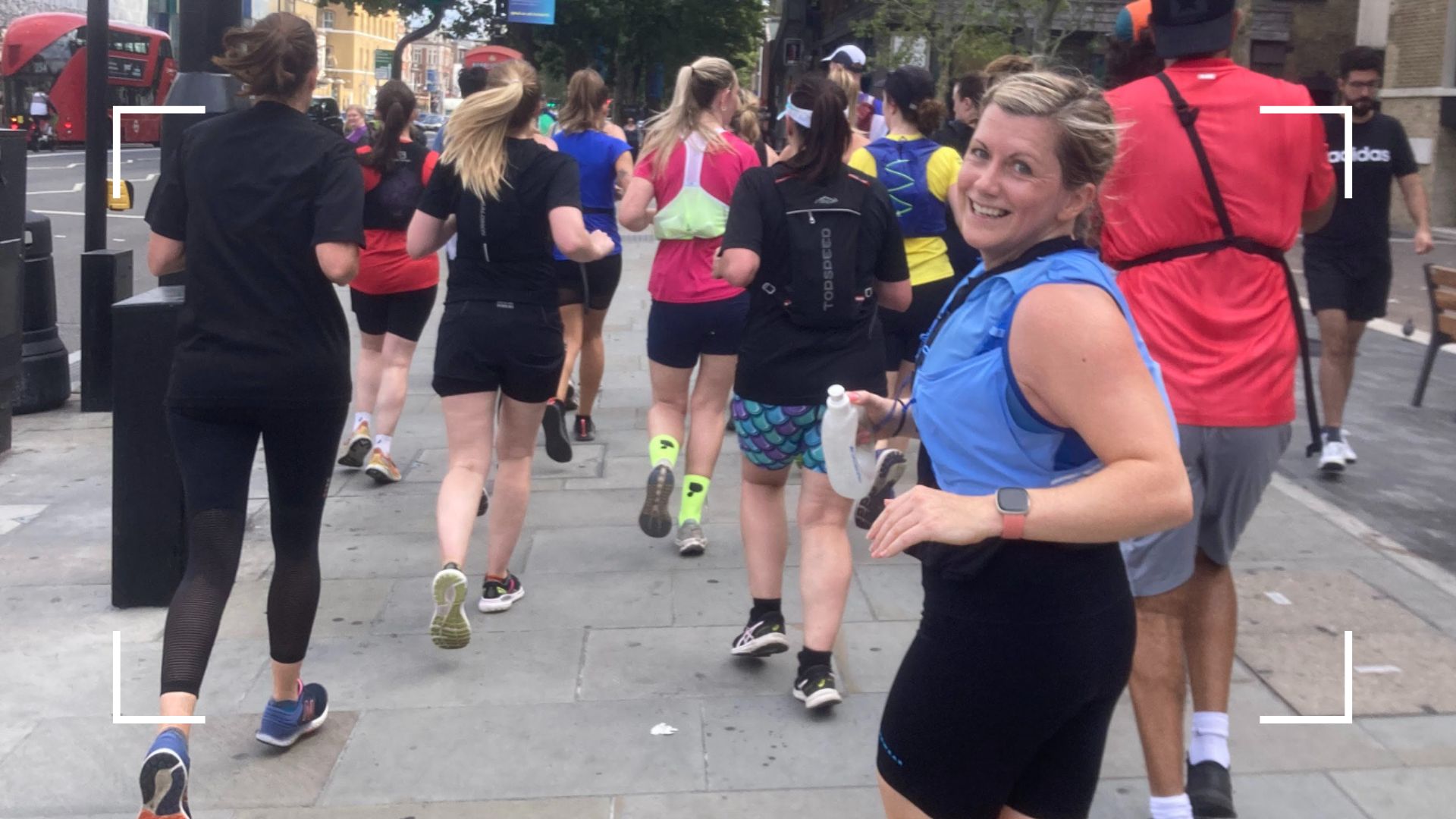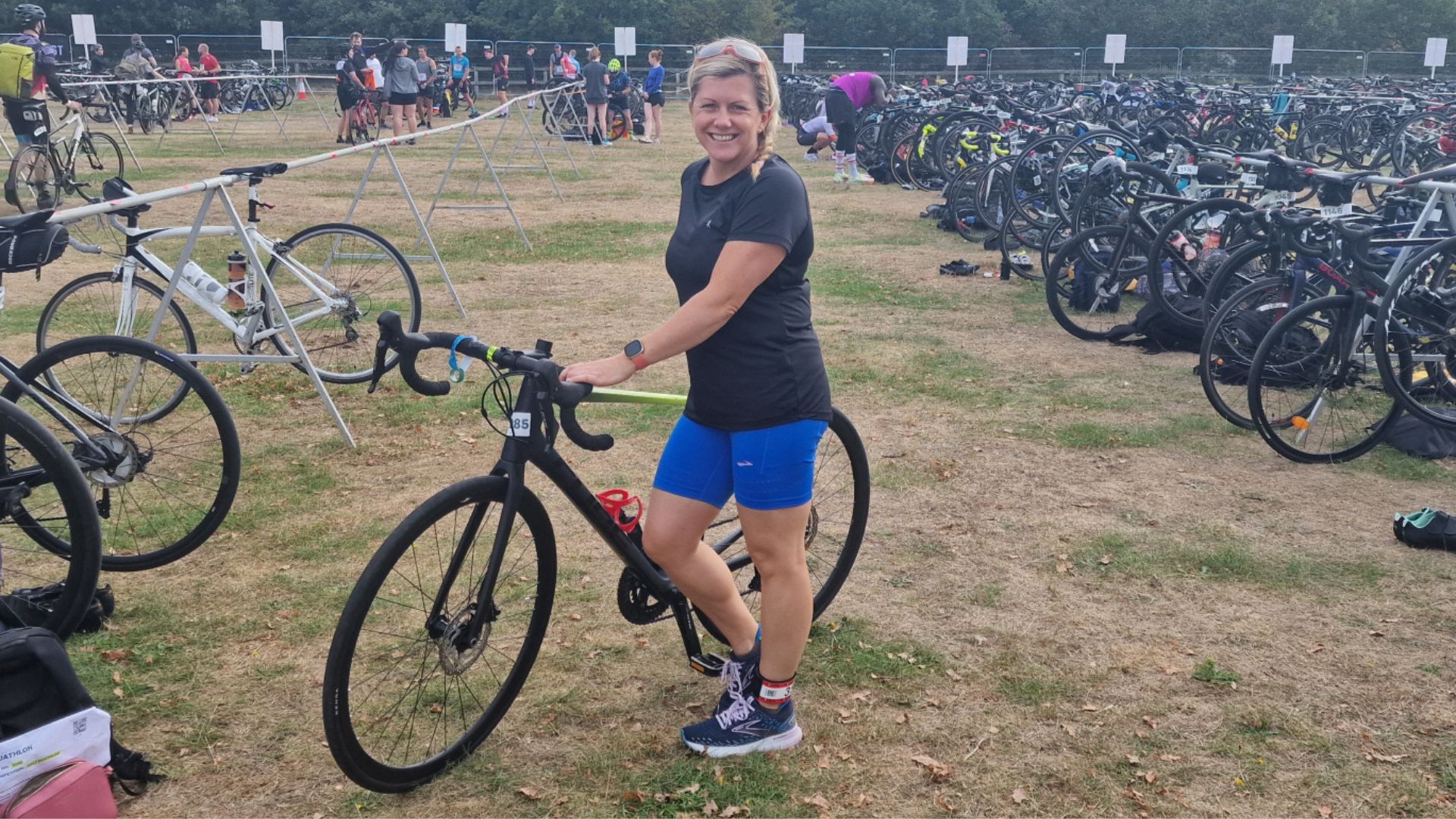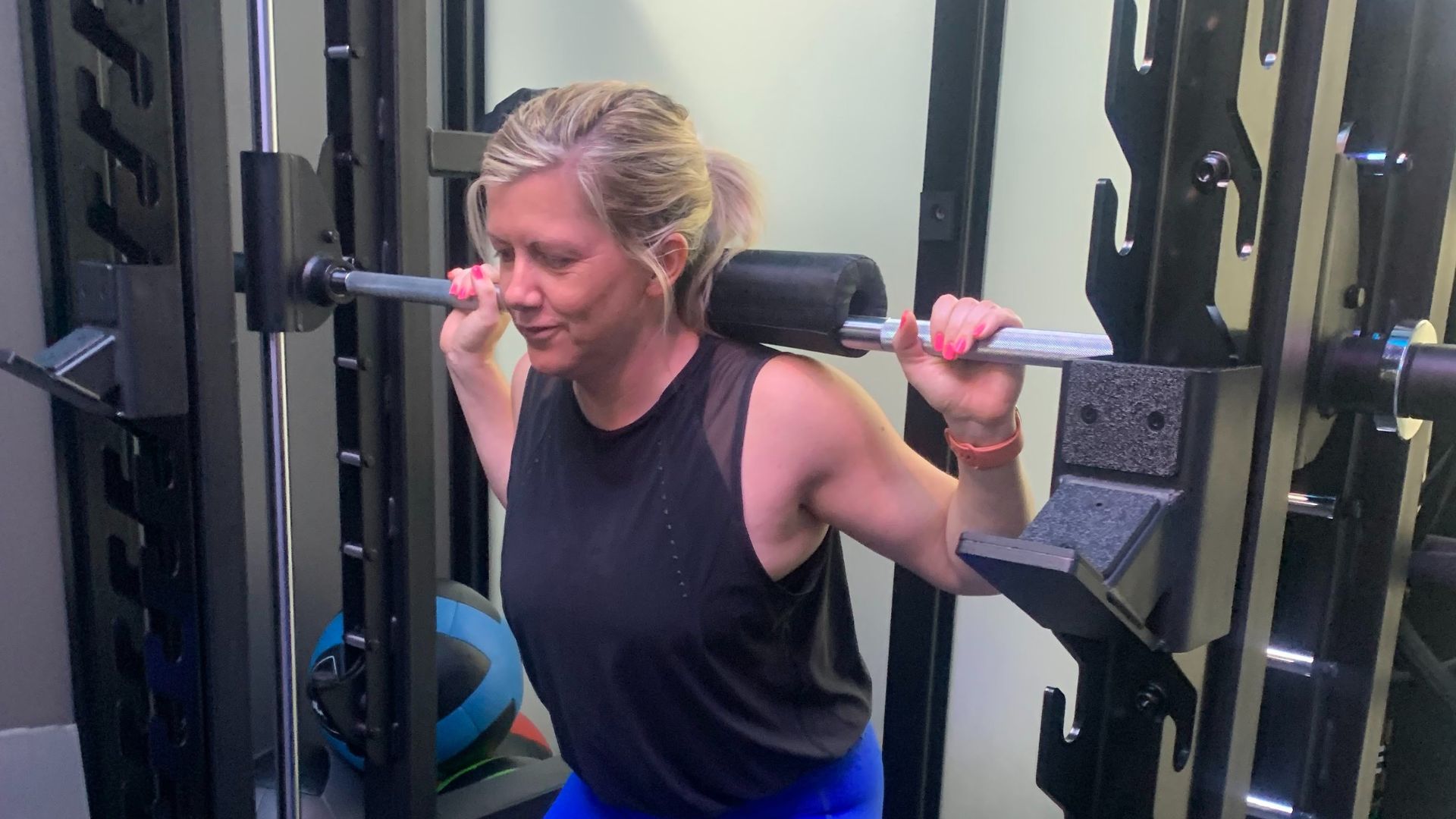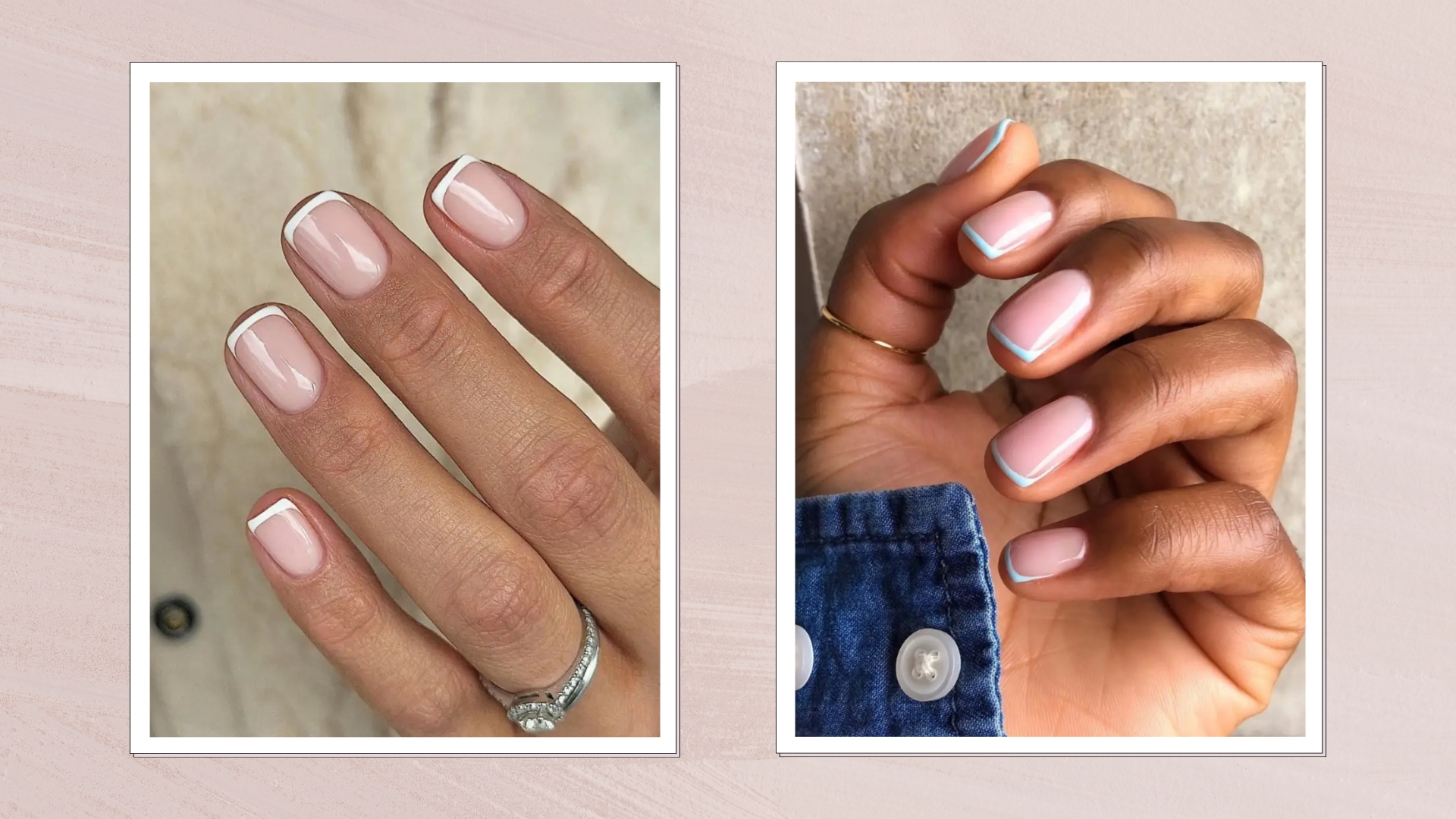I've been going to the gym for over 10 years - these are the most common workout mistakes to avoid
It's normal to make workout mistakes when you first start going to the gym. Writer and fitness enthusiast Sarah Finley here reveals the most common ones to avoid


It's easy to make common workout mistakes when starting a new routine, especially exercising too much and/or for too long, using poor technique, and going too heavy with weights too quickly. I should know - I've been going to the gym and working out frequently for over 10 years.
We’ve all been gym virgins at some point though, even if we look like complete pros now. I’ve suffered from multiple workout injuries due to incorrect form, failed to mix up my workout routine, lacked consistency and even chosen fitness classes I hated going to just because I thought I 'should' do a particular workout.
So, what are the most common workout mistakes? We quiz the experts on how you can avoid the top workout and gym mistakes specifically, whether you're into running, HIIT workouts, or strength training, all to help you get the most out of your workout routine.
Common workout mistakes
1. Practicing incorrect form
Body weight exercises such as squats or lunges may look easy, but if they’re not performed the correct way, you can do more harm than good over time. I’ve injured myself so many times by not learning the correct form for particular exercises. It's one of the biggest workout mistakes around.
Lyndsey Hunter Long, a trainer at Les Mills UK, agrees that it’s important. "Focus on learning the correct form for each exercise to prevent injuries then gradually increase the weight or resistance as your strength improves. This progression challenges your muscles and leads to growth."
A warm-up can also “increase blood flow and prepare your muscles for the class, and a cool-down can enhance recovery and reduce muscle soreness," she says.
It's something the stats back up too, with a study from Seoul National University finding that a warm-up before exercise can have a "meaningful effect on athletic performance by affording psychological stability, preparation, and confidence for exercise performance."
Sign up for the woman&home newsletter
Sign up to our free daily email for the latest royal and entertainment news, interesting opinion, expert advice on styling and beauty trends, and no-nonsense guides to the health and wellness questions you want answered.
Not sure how to perform a certain exercise? When getting started with strength training for beginners, it'll always be best to get help from an expert. That could be one of the best workout apps with video tutorials or if the budget allows for it, a personal trainer at your local gym.
2. Choosing the gym over sleep
I’m a big fan of early morning classes: they get me up and out of the house and mean my workout is done first thing, so I feel motivated and can enjoy the rest of the day. However, I used to make the mistake of getting up for a class even if I hadn’t had enough sleep - but it’s one of the worst mistakes you can make.
"Sleep plays an important role in optimal recovery," says Kaisu Martinmäki, a senior researcher at Polar. "Many of the body’s restorative functions, such as muscle growth and tissue repair, occur mostly during sleep. Sleep is also important for the mental side of recovery. The amount and quality of sleep have a profound impact on learning and memory as well as mood and motivation."
Research from the Children’s Hospital of Eastern Ontario Research Institute shows that adults need around 7 - 9 hours of sleep a night. But how can we determine whether we’ve had enough rest? You might like to gauge that by simply waking up and seeing how you feel in the morning, or tracking your sleep via a device.
"Sleep tracking can help you identify the factors in your day that may have a negative impact on your sleep. You will also learn which daily routines and choices improve the quality of your sleep," says Martinmäki.
These days, I choose sleep over a workout. If I’m too tired for an early morning workout I’ll just stay in bed and choose to do my workout later in the day or have a rest day if my body isn’t feeling up for it.
3. Not fuelling right
Feeling starving as you make it through your workout can be a massive mental block and leave you without enough energy for your workout. I’ve definitely been there many times. Equally, working out on a full stomach can give you a stitch.
I tracked my glucose levels for a couple of months earlier this year though and found my personal solution through doing it. For me, having something small with complex carbs - such as half a banana with peanut butter or avocado on wholemeal toast - an hour before a workout gives me the right energy to fuel my workout or run.
"Then after your workout, consume a balanced diet with adequate protein to support muscle repair and growth," says Hunter Long. She also emphasises the importance of staying hydrated to help maintain your performance, focus levels, and energy throughout the day.

4. Not mixing up your workouts
When I first started training I only ever did cardio. I ran, I span and did HIIT sessions but I never picked up any weights. I loved the buzz of a fast workout but quickly realised that if I wanted to progress then I had to add strength training into my routine as well.
It's especially important if you're looking to lose weight without too much exercise. "Combining strength workouts with cardio exercises can enhance weight loss efforts," says Hunter Long. "Muscle burns more calories than fat, aiding in maintaining a healthy weight."
But that’s not all as the fitness expert says that strength workouts can also "help regulate hormones like testosterone and estrogen, promoting overall hormonal balance."
If you’ve never trained with weights before, join an online or gym weights class to find out about the proper form and what weights you should start with. How often should you lift weights? It's a common question and one that I used to ask myself all the time. Of course, it differs from person to person. However, I find, and Hunter Long agrees, that two to three sessions a week and 48 hours of recovery is the best approach.
5. Not doing enough strength and conditioning
I learnt the value of strength training pretty quickly but it wasn't until a few years later that I saw the value of strength and conditioning workouts like Barre and Pilates. Along with classic strength training, these exercises help to stabilise the smaller muscles in the body such as those that support the knees, hips, and ankles, all of which you'll need to keep enjoying the exercises you love.
These workouts, whether it be a program of doing Pilates every day or trendy spins on classic routines like lagree, can also help to improve flexibility, which in turn leads to a decreased risk of injury. As Diana Coffey, head of movement at STRONG Pilates says, "Flexibility is important as it allows for the joints to move through their full range of motion. This results in better engagement of the muscles and helps not just with physical performance but also with everyday tasks."
6. Lacking consistency
When I first started working out I’d go consistently before I went on holiday and then would ditch the whole thing for margaritas and lying horizontal for a week or two. Although it's important to give your body a rest, especially when you’re on holiday, I found that I’d return home and feel like it was a massive uphill struggle to get my fitness levels back. So, while I don't work out as much when I'm away from home, I’m now the first to seek out a hotel gym.
It seems like I'm far from alone in this though. New research by Hilton in the 2023 Travel Trends report shows that physical wellness and access to fitness amenities like gyms and activities is important for nearly half (47%) of travellers these days. Hilton hotels, among others, even have Peloton bikes in some of their gyms so I can log in keep up with my indoor cycling obsession when I’m on holiday too.
It's not just gyms that I've noticed hotels have started to prioritise as others have introduced the idea of equipment borrowing services. For example, Westin Hotels has a handy Gear Lending programme, which includes ankle weights and resistance bands by Bala, and some locations (such as London) offer a Rise & Run running club to guests.

7. Not stretching enough
I didn’t practise yoga until lockdown, but just 20 minutes once or twice a week helped me see a massive improvement in my running and even my sleep. This is because doing yoga, much like Pilates and Barre strengthens and stretches the used and underused running muscles.
"Yoga includes many micro-movements that strengthen micro-muscles that may be harder to target in other forms of exercise," says yoga teacher Charlotte Townend "Where running shortens the muscles, yoga will lengthen them. The practice eases tension and restores range of motion which works wonders as a form of recovery.”
And much like doing Pilates, picking up a routine of doing yoga every day or every week will help the muscles and joints become stronger. "They become more stable which will also prevent injury," Townend, who is also the founder of Wylder Retreats, explains. "Yoga realigns the body where needed to maintain a good running technique."
How do you know if you did a workout wrong?
If you’re feeling achy, tired or have an injury, then you’ve probably overdone it or performed an exercise the wrong way. "Unusual muscle soreness after a workout which generally sticks around, a feeling of really 'heavy' legs, or even when you train at a lower intensity, or if you see a performance plateau or decline [are the main symptoms]," says Helen O'Leary, a chartered physiotherapist and the clinical director at Complete Pilates.
Overtraining, which is where you push your body a little too often beyond its limits, is common when you start to get the gym bug as well. "You may also have prolonged general fatigue, poor sleep quality, generally find it more difficult to relax, have a lack of energy, and you may feel more angry or depressed" if this is the case, O'Leary says.
Injuries can also be a sign of doing a workout wrong, she adds. "It can be due to lifting too much too soon, not having enough recovery days built into your training programme so you do not allow your body to repair, or simply pushing yourself too fast."
Workout tips from the experts
- Got a big run coming up? One of the best running apps - like Runna or WithU - will schedule runs for you, track your progress, and motivate you with in-app audio prompts.
- Take at least two rest days a week: Overtraining - which means training with weights or at a speed your body isn't ready for or working out too often - can lead to fatigue, illness (as your immune system can't keep up with the added stressors), and injury.
- Not sure what stretches to start with? “A Pigeon pose (Kapotasana) will release tension and tightness in the hips, glutes and tension and pain in the lower back,” says Townend.
- Keep progressing with your training plan: "As you become more experienced, you can increase the intensity, frequency, and complexity of your workouts," says Hunter Long. This is called progressive overload and it's essential if you're looking to get fitter or you're trying to lose weight but have stopped losing weight in a calorie deficit.
- Lacking workout motivation? If you’re lacking motivation, sign up for a gym class instead of just working out on your own. I’ve learnt that group classes give me a sense of community and direction.
- Find something you enjoy: Whether it's Pilates for strength training or doing swimming as a workout, stick to the activities you enjoy and ditch the ones you don't like. Life is too short to spend an hour doing a fitness class that you hate.
Sarah is a freelance journalist - writing about the royals and celebrities for Woman & Home, fitness and beauty for the Evening Standard and how the world of work has changed due to the pandemic for the BBC.
She also covers a variety of other subjects and loves interviewing leaders and innovators in the beauty, travel and wellness worlds for numerous UK and overseas publications.
As a journalist, she has written thousands of profile pieces - interviewing CEOs, real-life case studies and celebrities - interviewing everyone from Emma Bunton to the founder of Headspace.
-
 We're in awe of Sienna Miller's easy-going and 'piece-y' hairstyle and how perfect it is for spring
We're in awe of Sienna Miller's easy-going and 'piece-y' hairstyle and how perfect it is for springThis laid-back hairstyle is - quite literally - making waves this season
By Naomi Jamieson Published
-
 We never thought we'd see this 'dated' manicure make a chic comeback, but here it is - and we're on board
We never thought we'd see this 'dated' manicure make a chic comeback, but here it is - and we're on boardClean and angular, short square French tips are a go-to this season for a practical but stylish manicure...
By Naomi Jamieson Published